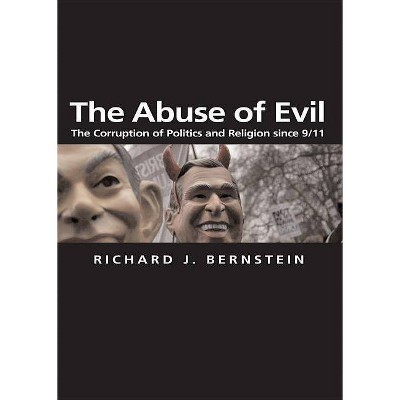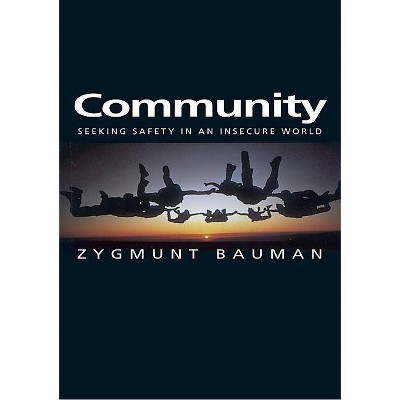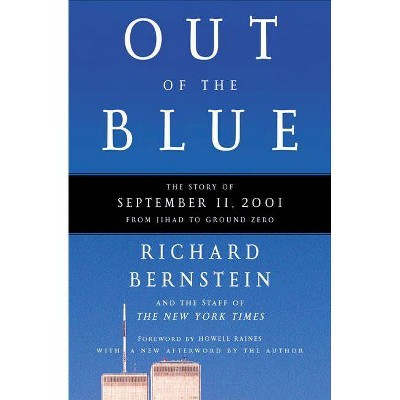The Abuse of Evil - (Themes for the 21st Century) by Richard J Bernstein (Paperback)

Similar Products
Products of same category from the store
AllProduct info
<p/><br></br><p><b> About the Book </b></p></br></br>Since 9/11 politicians, preachers, conservatives and the media are all speaking about evil. In the past the discourse about evil in our religious, philosophic and literary traditions has provoked thinking, questioning and inquiry. But today the appeal to evil is being used as a political tool to obscure complex issues, block serious thinking and stifle public discussion and debate. We are now confronting a clash of mentalities, not a clash of civilizations. One mentality is drawn to absolutes, moral certainties, and simplistic dichotomies of good and evil. The other seriously questions an appeal to absolutes in politics and criticizes the simplistic division of the world into the forces of evil and the forces of good. In The Abuse of Evil Bernstein challenges the claim that without an appeal to absolutes, we lack the grounds for acting decisively in fighting our enemies. The post 9/11 abuse of evil corrupts both democratic politics and religion. The stakes are high in this clash of mentalities in shaping how we think and act in the world today - and in the future. -- Publisher description.<p/><br></br><p><b> Book Synopsis </b></p></br></br>Since 9/11 politicians, preachers, conservatives and the media are all speaking about evil. In the past the dicourse about evil in our religious, philosophic and literary traditions has provoked thinking, questioning and inquiry. But today the appeal to evil is being used as a political tool to obscure compex issues, block serious thinking and stifle public discussion and debate.<br /> <p>We are now confronting a clash of mentalities, not a clash of civilisations. One mentality is drawn to absolutes, moral certainties, and simplistic dichotomies of good and evil. The other seriously questions an appeal to absolutes in politics and criticizes the simplistic division of the world into the forces of evil and the forces of good.</p> <p>In <i>The Abuse of Evil</i> Bernstein challenges the claim that without an appeal to absolutes, we lack the grounds for acting decisively in fighting our enemies. The post 9/11 abuse of evil corrupts both democratic politics and religion. The stakes are high in this clash of mentalities in shaping how we think and act in the world today - and in the future.</p><p/><br></br><p><b> From the Back Cover </b></p></br></br>Since 9/11 politicians, preachers, conservatives and the media are all speaking about evil. In the past the dicourse about evil in our religious, philosophic and literary traditions has provoked thinking, questioning and inquiry. But today the appeal to evil is being used as a political tool to obscure compex issues, block serious thinking and stifle public discussion and debate.<br /> <p>We are now confronting a clash of mentalities, not a clash of civilisations. One mentality is drawn to absolutes, moral certainties, and simplistic dichotomies of good and evil. The other seriously questions an appeal to absolutes in politics and criticizes the simplistic division of the world into the forces of evil and the forces of good.<br /> </p> <p>In <i>The Abuse of Evil</i> Bernstein challenges the claim that without an appeal to absolutes, we lack the grounds for acting decisively in fighting our enemies. The post 9/11 abuse of evil corrupts both democratic politics and religion. The stakes are high in this clash of mentalities in shaping how we think and act in the world today - and in the future.</p><p/><br></br><p><b> Review Quotes </b></p></br></br><br>A dazzling demonstration of philosophy's public relevance.<br /> <p><b>Nancy Fraser, <i>New School for Social Research</i></b><br /> </p> <p><br /> </p> <p>"Building on the conceptual framework advanced in his last book, Radical Evil, Bernstein argues that what defines the post 9-11 world is an abuse of evil. In the face of the pernicious moral absolutism of neo-conservatism and the religious right, Bernstein advances a pragmatic fallibilism that is consistent with both the fragility and tenacity of democracy. It is the great merit of this book to show that such a fallibilism is not only continuous with a religious world-view, but is its enabling condition. If philosophy, as Hegel insists, is its time comprehended in thought, then Bernstein gives his readers a philosophical wake-up call to think about evil in the face of so much unthinking moralism."<br /> </p> <p><b>Simon Critchley, <i>New School for Social Research</i></b></p><br><p/><br></br><p><b> About the Author </b></p></br></br><b>Richard J. Bernstein</b> is Vera List Professor of Philosophy at the New School for Social Research, New York.
Price History
Price Archive shows prices from various stores, lets you see history and find the cheapest. There is no actual sale on the website. For all support, inquiry and suggestion messagescommunication@pricearchive.us




















